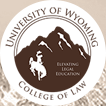Document Type
Article
Subject Area
Special Section
Abstract
Federal and tribal trust lands will be essential to the development of carbon removal projects in much of the western United States. As a result, project developers in Montana and Wyoming have already requested rights to pore space in nearly a million acres of public lands. Yet, despite the enactment of incentives for carbon removal and the Class VI regulatory program, Congress has not yet spoken with respect to the use of federally managed lands for sequestration. Notwithstanding this lack of direction, project developers and land managers throughout the western United States are working to enable projects relying on existing authorizations in the Federal Land Policy and Management Act (FLPMA). In the past two years, land management agencies have initiated rulemaking and issued guidance relating to sequestration in multiple use public land addressing topics including injection authorizations, conformance with management plans, NEPA compliance, and conflicts with other subsurface uses. There is considerably less certainty with respect to tribal lands. Development of sequestration projects in Indian Country requires understanding the history of federal acquisition and management of tribal land, differences among the checkerboard of property interests within reservations, regulations relating to surface and mineral use and consultation, and the role of tribes in environmental regulation. Carbon sequestration has opened a new frontier for the economic use of federal and tribal lands. Working within existing frameworks is possible with cooperation and communication among project developers, land managers, and, as appropriate, tribes. These first-mover projects, however, are likely to press on lingering uncertainties, prompting resolution by Congress, tribal governments, land management agencies, and the courts.
DOI
10.59643/1942-9916.1504
Rights
Copyright © 2024 by the WYOMING LAW REVIEW unless otherwise noted. Except as otherwise provided, copies of any article may be made for classroom use, provided that: (1) Copies are distributed at or below cost; (2) The author and the journal are identified; (3) Proper notice of copyright is affixed to each copy, and (4) The WYOMING LAW REVIEW is notified of the use.
Recommended Citation
Andrew Emrich,
Elisabeth Takeuchi,
& Tara Righetti,
CCS in the Checkerboard West: Lessons on How to Move with the Federal Government on the Board,
24 Wyo. L. Rev.
237
(2024).
Available at: https://scholarship.law.uwyo.edu/wlr/vol24/iss2/1

